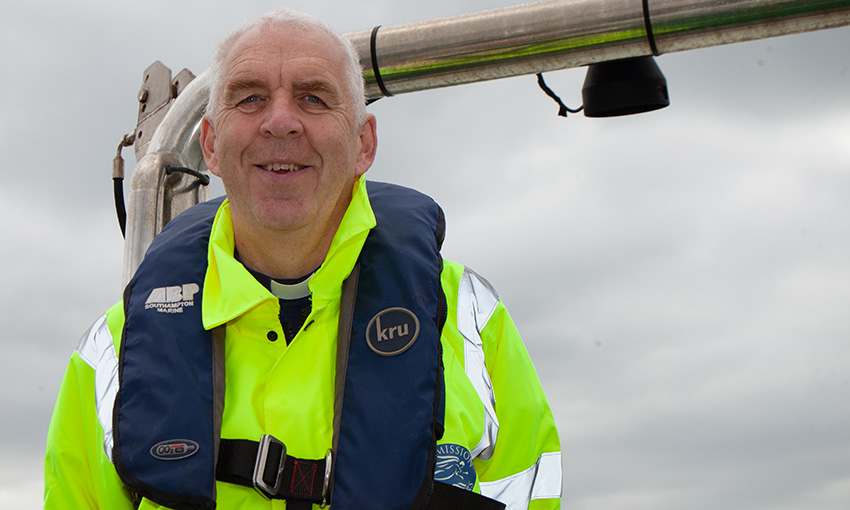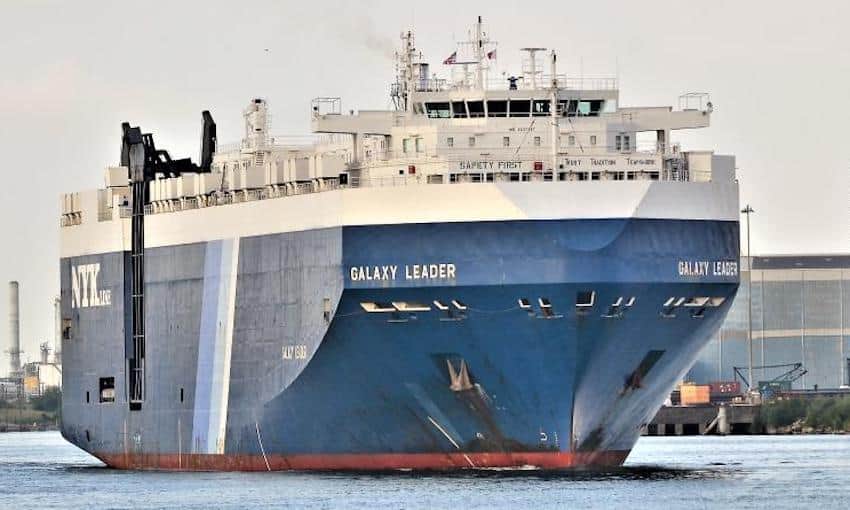By the Revd Canon Andrew Wright, secretary general, Mission to Seafarers
THE Mission to Seafarers shares the horror and sadness of so many as we witness events in Ukraine. Our thoughts and prayers are with all directly caught up in the fighting, including seafarers trapped in Ukrainian ports, crews facing immediate risk in hostile waters (we are currently visiting the crew of at least one ship which suffered attack and damage) and local maritime chaplains and volunteers from our colleague societies.
More specifically, our focus is on the many Ukrainian and Russian crews that we encounter in ports all over the world. I have just been reading a digest of some of the stories that have come in from Mission to Seafarers teams in these early days of the conflict. They all reflect the tremendous anxiety and stress faced by seafarers of both nationalities, sometimes working alongside each other on board. I am deeply touched by the responses of our chaplains and teams in such dreadful circumstances. Here are just a few.
From Panama: “An emotionally challenging visit to this lovely, warm, and welcoming crew after many months. Chief Officer is from Mariupol, Ukraine. He has been on the telephone regularly with his wife is who frightened and deeply distressed by the invasion. Mariupol is currently surrounded and there is no way for her or the family to leave. He is due to sign off on 3 March and has no way of returning home. Chief Officer has decided to fly to Germany so that he may stay with relatives living there in the hope that the negotiations between the Ukraine and Russia will be successful and enable him to return home. He is clearly upset and worried about the escalation of the violence and not being able to do anything concrete to help or support his family.”
From New Zealand: “Wi-fi given upon arrival. Sad. Seven Ukrainians and six Russians onboard. No fighting but very sad. They cannot go home. They cannot have crew changes. Some onboard for 9.5 months. Last time I visited they were so cheerful, just awful with what they are going through. Have told them to ring me day or night if they want to talk. They are coming back one more time so I can check up and see how they’re doing then.”
From the UK: “Delivered Wi-fi and newspaper. Two Ukrainian crew on board and provided two free SIM card packages to them. The wife of one of them is in Kiev and tried to talk to her, but access is very limited to reach her. Third Officer sent us order for sushi.”
From the US: “Visited to deliver one last package. Fifteen new crew members on board this morning. We got to speak with a new officer from Ukraine about the situation back home. He is concerned for his family, who are currently fleeing to Spain following the recent bombings. They will be in our prayers.”
As things become clearer, we will no doubt face calls for the support of seafarer families who find themselves displaced or where there has been injury or death – and there will be the realities of damaged and destroyed housing. Thankfully, the world is rallying in the provision of immediate support to refugees, and maritime welfare charities have time to prepare for some of these big challenges.
Emerging key issues directly impacting our immediate work include:
- the desperate anxieties felt by seafarers about family back home – creating high levels of pastoral and welfare need;
- the urgent demand for enhanced communication provision and the capacity to support calls with family, especially for Ukrainians; and
- travel restrictions and bans having a very severe impact on travelling home after a contract.
The Mission to Seafarers is immediately enhancing its Samaritan’s Fund to enable additional payments in support of communication provision at a local level, including through SIM cards and MiFi units. Our emergency fund can also be accessed to help with stranded seafarers if that becomes necessary. As a high priority, we are looking at ways in which we might provide enhanced Ukrainian/Russian own language mental health support, building on that which is already in place through our WeCare programmes. We are also looking closely, with partners, at other support we might offer.
Above all, we remain committed as ever to appropriate pastoral support in every place where we encounter Ukrainian and Russian seafarers, as we do daily in the 200 ports across 50 countries where we have chaplaincy teams. In every encounter, we will offer a listening ear and a friendly welcome, alongside guidance and such practical help that it is possible for us to deliver. Where necessary, we will signpost to other support options. Where there is crew conflict, we will work for reconciliation. And as ever, where it is requested, we will offer prayer and direct spiritual support. It goes without saying that our welcome will remain inclusive and for all, remembering the clear teaching and example of Jesus.
Please join us at The Mission to Seafarers in praying for a swift and lasting peace, as we remember the sufferings of so many.





